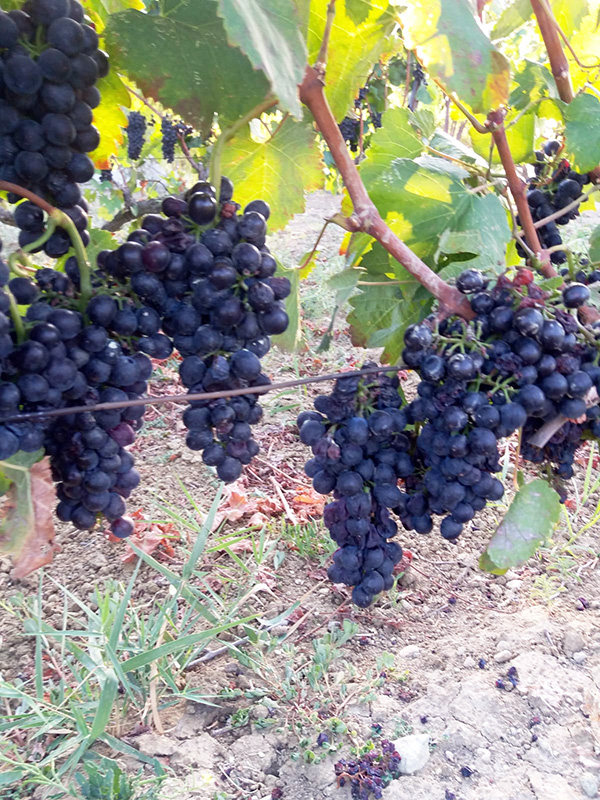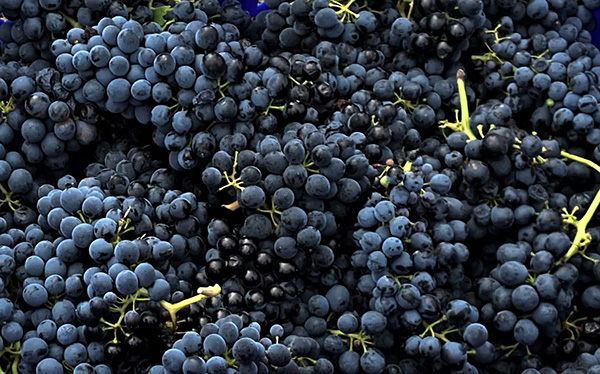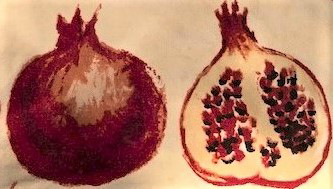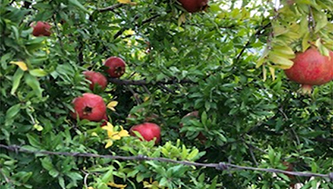The Land
The Gallipoli Peninsula and the Dardanelles, where KARNAR cultivates its grapes, have a long history, merging Greek, Persian, and Hittite mythology with many other diverse stories - ranging from the romantic to the military.
There are many accounts of Lord Byron's 1810 swim across the Hellespont, which was itself inspired by the tale of Hero and Leander, and the action-packed account of Persia’s Xerxes I crossing the straight in 480 BC en route to invading mainland Greece - all of which took place more than a millennium before Britain’s First Lord of Admiralty was driven to exclaim foreseeably, "Damn the Dardanelles, it will be our grave!" in 1915. It is easy to believe that the region has seen most, if not all, of the feats and foibles of mankind.
KARNAR Vineyard is located in Thrace ("Trakya", in Turkish) on Highway D550, connecting Gelibolu (the Ancient city of -Kallipolis, meaning "Beautiful City") to Eceabat (the Ancient Madytos), about 20 Km West of Gelibolu. The Vineyard is perched on top of a hill on the European side of the Dardanelles, and overlooks a panorama of Asian sites, including Lapseki (the ancient city of Lampsakus) to the South, Kaz Dağları (Ancient Mount Ida) to the Southwest, and the brand new 1915 Çanakkale Bridge, about 3 Kms. to the East. The famed City of Troy lies approximately 40 Km to the Southwest in Asia.
The Vineyard is almost on top of, and actually looks down upon, the Aegospotami River (which translates as the "Goats’ River" or the Turkish "Cumalı Çayı"), renowned as the site of the final momentous naval encounter of the Peloponnesian Wars, in which the Athenian Navy was decisively destroyed by Sparta's Sea Fleet in 405 BCE. According to accounts of this battle, the Athenian fleet was stationed at the mouth of the Aegospotami while Sparta's, under the command of Lysander, was based at Lampascus, almost directly across the Strait. The Athenians' base camp was ill-chosen because the river lacked a suitable harbor, and the sailors were obliged to frequently forage for food and drink, thus leaving their ships beached and relatively unprotected in the inlet. This predicament did not escape Lysander, who ordered a surprise attack on the defenseless Athenian ships, which destroyed or captured all but a handful. The Spartans would then lay siege to the debilitated Athens, and Lysander's fleet closed the grain and wine routes through the Hellespont, starving and conquering Athens and marking the end of Greece’s "Golden Age."
The KARNAR site was developed (between 1996-2006) - approximately 2400 years after the Battle of Aegospotami. We established the Vineyard with these historical events in the forefronts of our minds and feel strongly that one should always have enough food and wine on hand at all times; history itself may depend on it.


The Founder and Proprietor
The Karcioglu family
The Name ("KARNAR")
Although the name sounds as if it may have its roots in the rich mythology of the region, it is not mythical and derives neither from Pythagorean calculations, Homeric epics, or Chaldean numerology. KARNAR is the union of the first three letters of our family name, KAR ("snow" in Turkish) with the Turkish word for pomegranate: "NAR". When it came time to name our vineyard and wines, the abundant bright red pomegranates encircling our site - and their four-thousand-year-old symbolism of hope, prosperity, and good fortune - could not be ignored.


The Grapes and Wine
There are only two kinds of grapes produced in our "mini-boutique" vineyard, Shiraz (75%) and Cabernet Sauvignon (25%). The capacity ranges from 7-10 tons annually. We do not grow much, but we grow fine grapes with tender love and care.
Wine, mainly medium-dry white wine, has been produced in Thrace for thousands of years but the internationals like Shiraz (Syrah) and Cabernet Sauvignon are relatively new to the region. Thracian varietals traditionally included indigenous grapes like Yapıncak, Beylerce, Vasilaki, Altıntaṣ, Mavrud. Late transplants from other countries include Gamay, Sauvignon Blanc, Reisling, Pinot Noir, Semillon and of course Shiraz.
Why Shiraz? It was a personal decision by the instigator of KARNAR, Güler Lebibe Karcioglu, for personal reasons. First, she has always liked dry red wines, and liked Australian Shiraz best. The second reason was that Shiraz was somewhat of a challenge for a vineyard fronting the harsh climate of the Dardanelles. We were novices ready to experiment, so we planted Shiraz.
Although its lineage is traced to two Rhône varieties: Dureza (a black-skinned grape) and Mondeuse Blanche (a white grape), by DNA profiling, the origin of Shiraz name is not clear. There are several accounts regarding the name. One interesting anecdote is that the earliest Australian documents refer to the grape as "Scyras", and "Shiraz" is thought to be a corruption of that word. On the other hand, it may very well be a tribute to the Persian city of Shiraz, known for producing fine wine in 9th Century.
No matter how this grape came to its name, it has long been recognized to be, in the right hands, the foundation of a sought after full-bodied, dark red, wine. We believe that this experiment, begun approximately a decade ago, has been an unmitigated success, and has produced very enjoyable Shiraz wines.
KARNAR's Lebibe is a rich red wine with shadowy crimson color. It predominantly presents an aromatic, bright fruit profile of Shiraz with rich flavors of plum, sour cherry (viṣne) and blackberry escorted by stimulating, but well-adjusted soft tannins. Secondary accents of black pepper and chocolate are also recognized from year to year.
KARNAR also blends Shiraz with Cabernet Sauvignon offering a smooth, full-bodied red wine. This combination particularly stands-out in our 2016 Special Edition for Gallipoli Centennial.
A long-time dear friend of the family, Akın Gürbüz, the eminent enologist of the Thrace region, has been our number one helper and adviser in winemaking and vineyard upkeep.
Food pairing for KARNAR
Our wines pair best with foods familiar to Western Anatolia - hearty and flavorsome grilled red meats and dark meat of fowl, as well as pasta dishes with shrimp, scallops, and other sea creatures from the Aegean coast. It also goes well with lasagnas and thick stews, which complement our wines' medium-to-high tannins. Although the common sentiment is to refrain from coupling Shiraz with seafood-based dishes, it is our fervent belief that it accompanies grilled firm-fleshed Mediterranean fish and other rich sea crops like lobster and grilled octopus very well.
Actually, KARNAR pairs well with any good food, as long as the table is surrounded by a cheery and cherished assortment of friends and family 😊
Şerefe! (Cheers!)



